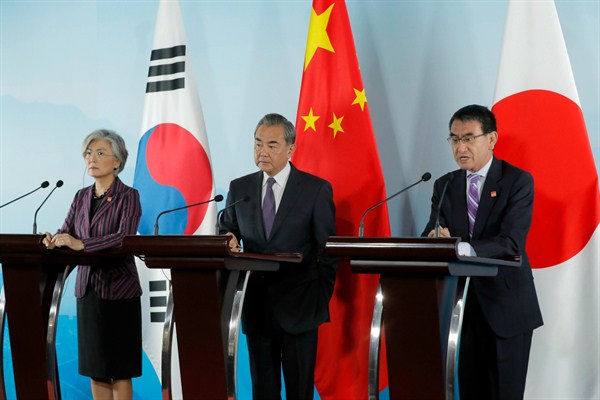The foreign ministers of China, Japan and South Korea met in Beijing last month, where they agreed to seek closer economic ties and push for “free and fair trade” amid a climate of rising protectionism. A leader’s summit in China could follow later this year— an opportunity, perhaps, to resolve some festering troubles in a region mired in mistrust.
This diplomatic progress in collective ties comes at an inauspicious time. Attempts by Beijing, Tokyo and Seoul to work together have been undermined constantly over the past decade due to various rivalries in Northeast Asia. An inaugural trilateral leaders’ summit was held in 2008 in Beijing and was followed by consecutive meetings over the next four years, with the host nation rotating each year. Yet since 2012, the three leaders have only met twice—in 2015 and 2018—and meaningful progress on trade and other areas of cooperation have been scant.
Trilateral diplomacy initially ground to a halt as a result of crippled bilateral relations between Tokyo and Beijing over their territorial row in the East China Sea involving Japan’s Senkaku Islands, which China claims as the Diaoyu. Compounding tensions are historical issues from World War II and the perception, widely held in Seoul and Beijing, that conservative Japanese Prime Minister Shinzo Abe is bent on revising the traditional narrative of Japan’s culpability during the war.

